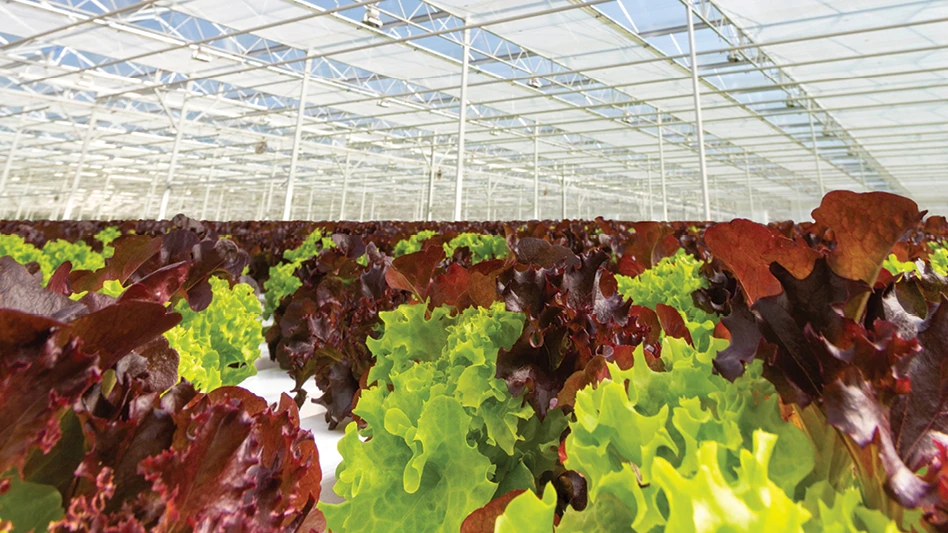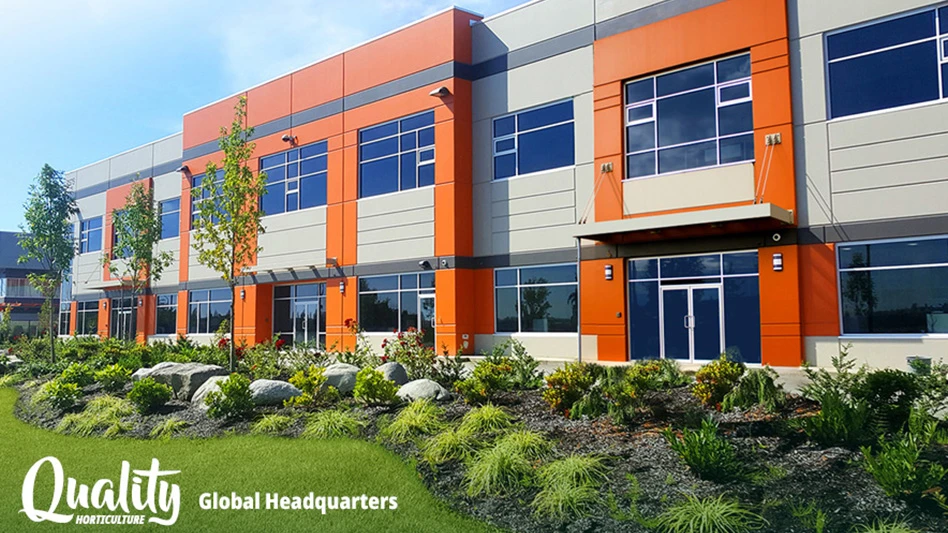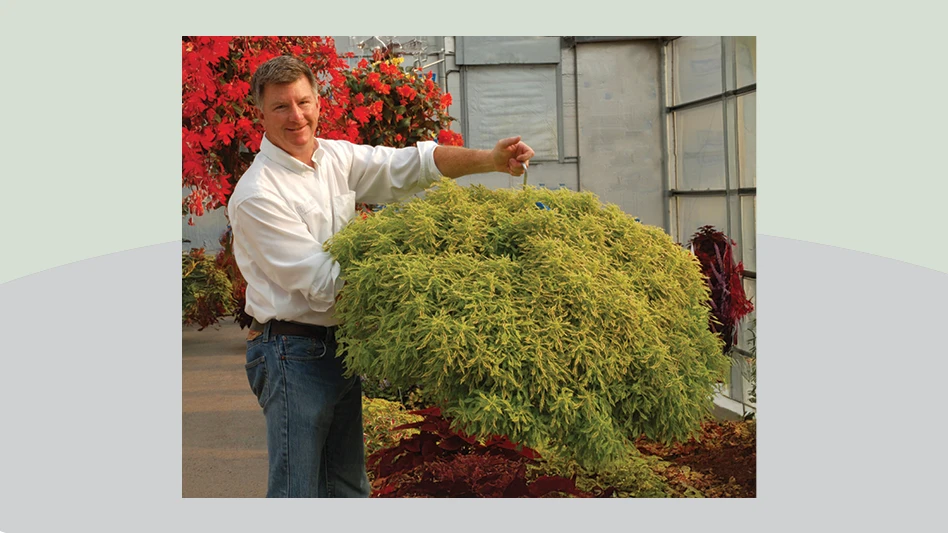 Four new workers joined Rockwell Farms this year, and they’re each working up to 20 hours a day. They work tirelessly alongside 150 employees, growing “porch and patio ready” plants for supermarkets across 10 Southeastern states.
Four new workers joined Rockwell Farms this year, and they’re each working up to 20 hours a day. They work tirelessly alongside 150 employees, growing “porch and patio ready” plants for supermarkets across 10 Southeastern states.
Of course, all of the people at Rockwell Farms work hard to supply crucial skills to the operation, which also grows on contract for Metrolina Greenhouses. But the newest four additions aren’t people — they’re robots.
The company purchased them in January from Harvest Automation, a material handling company that develops robots for the agriculture industry. Adjusting to this futuristic labor force is an ongoing process as Rockwell Farms strives to get the most out of these robots.
“The robots themselves work perfectly well,” says Jason Roseman, director of sales. “But when you bring in technology and automate, you have to adjust your systems and processes to utilize it to its fullest potential. It’s a lot different than just sending in an extra crew.”
The robots space products in 3-quart, 1½- and 2-gallon pots. At less than 2-feet tall, using bracket-like “arms” designed to fit around a pot, the robots move plants at a maximum rate of 240 pots an hour, according to Harvest Automation.
Because the robots work at a much different pace than manual laborers, Rockwell Farms has to adjust its production tasks and schedules.
“We’ve had to adjust the way in which we plan the daily, weekly and monthly tasks for our production crews,” Roseman says. “Managing how the work is going to be completed takes a different plan than doing it by hand. We know how long it takes to space 1½-gallon geraniums with four people, so if we put 12 people on it, it’s simple math. But with the new technology, there’s a learning curve and there are different factors to account for.”
Manual labor is still a factor, however. Rockwell Farms continues to train more people to operate the robots in order to increase the robots’ hours. Ultimately, the robots are a tool to help employees be more efficient — which is what drove the company toward this innovation in the first place.
“One of the things we’re always trying to do for our employees is to cut down on some of the arduous stoop labor, and spacing is one of those things that’s difficult to do,” Roseman says. “As we’re finding it more and more difficult to retain a qualified labor force, this was a way to diversify our workforce.”
Automating to meet needs
The robots aren’t the only automation Rockwell Farms added this year for more efficient inventory control. The company also installed a conveyor system that runs between an outdoor growing field and a newly-constructed Cravo greenhouse.
“You can feed the conveyor belt from one central location and it can go all the way to the end of the bay,” Roseman says. “It makes it much easier and much more efficient for us to move product in and out of that field and that Cravo house. You’re not having to move carts in and out of the bay — cutting down on some of that stoop labor because you’re putting the plant on a belt rather than putting it onto the ground.”
The robots and the conveyor system are already improving productivity at Rockwell Farms as the company determines how to optimize these new tools. Over time, the company expects to see a reduction in direct labor costs, as well.
As just-in-time inventory and delivery become more important to Rockwell Farms' customers, the company continues to explore innovative ways to accelerate and automate steps of the production process.
“The market is constantly changing, and what our customers need is always changing,” Roseman says. “We pride ourselves on being able to adapt and change and bring new ideas to meet their goals. We’re committed to trying to automate and innovate as much as we can from a production standpoint, because that’s important for our growth going forward.”

Explore the November 2014 Issue
Check out more from this issue and find your next story to read.
Latest from Greenhouse Management
- North Carolina Nursery & Landscape Association announces new executive vice president
- Plant Development Services, Inc. unveils plant varieties debuting in 2025
- Promo kit available to celebrate first National Wave Day on May 3
- Applications now open for American Floral Endowment graduate scholarships
- Endless Summer Hydrangeas celebrates 20 years with community plantings
- Invest in silver
- Garden Center magazine announces dates for 2025 Garden Center Conference & Expo
- USDA launches $2 billion in aid for floriculture growers





